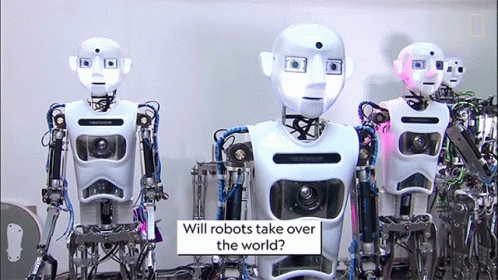
The Case for AI
If you're going into finance like me, you may wonder if AI will one day take your job. It is certainly something I have considered. AI and automation are getting ridiculously good at analyzing data, spotting patterns, and even making predictions. A big part of my chosen profession, but also extending to many other realms, involves crunching numbers and then using those numbers in models and visualizations in order to provide analysis to decision makers about various financial topics. This is certainly concerning, as AI can do all of those things faster than I can.
AI can sift through years of data, find inconsistencies, flag areas of concern, and probably even suggest strategies that one could take. However, all of these machine learning programs are based on what it knows about past trends. While machine learning is impressive and can certainly be used to decrease the monotony in certain tasks, it struggles to keep up with things that it hasn't been exposed to yet.
AI and Entrepreneurship?
One of the best ways to stay ahead of automation is through entrepreneurship. While AI is great at analyzing data, optimizing processes, and even generating content, it struggles with true innovation, the kind that comes from human creativity and intuition. Entrepreneurship is all about spotting gaps in the market, coming up with new ideas, and building something unique that didn’t exist before. Whether it’s launching a startup, developing a new product, or finding a fresh way to serve customers, these are things AI simply isn’t well-equipped for.
AI can assist in refining ideas and making businesses more efficient, but it lacks the originality and vision that drive groundbreaking companies forward. Entrepreneurs who focus on creativity, adaptability, and human connection will always have an edge because those are the qualities that machines can’t easily replicate. Therefore, if you want to make sure that you stay ahead of the AI curve, you should focus on innovating something new.
Alternatives
Not all people have the desire to innovate, however. If that sounds like your case, then I have good news for you. Dr. Jay Richards points out that expecting AI or machines to take all of our jobs isn't completely rational, as AI is simply an advance in technology. Throughout human history, old technologies have been replaced with new ones, causing disruption. Every instance of this disruption has led to a more efficient workforce as old jobs get replaced by different jobs within the new sector of technology. At the end of the day, the modern job force needs to understand that while their current job might vanish, they can use their already developed skills to specialize and create new value for themselves. For example, A finance professional could transition from being a financial analyst to being an analytical prompt writer for AI, and use their knowledge about good financial analysis in order to engineer high quality AI prompts to get high quality information as an output. Nobody is doomed, but society will be worse off if we allow fear of job loss to stunt our technological advancement.
Dealing With Job Loss
Nobody wants to lose their job, and I hope that most people don't want someone else to lose their job either. However, in today's current landscape, it becomes a very sensitive topic. There have been several recent strikes recently regarding the film and entertainment industry in which actors and voice actors have protested against the use of AI generation of voice lines or images in different films or video games.
Obviously they want job security, and AI poses a threat to that. The result so far has been large entertainment companies essentially promising to not use AI generated content over real human content. While I will not suggest this being either incorrect or correct, it does create a unique and hard to answer question. At what point, if such a point is ever reached, is it best overall for society for a robot to do your job instead of you? If a robot can do your job 2x as fast, with 2x the accuracy, at 1/2 the cost, do you ever have the societal responsibility to throw in the towel and use your limited resources in a different way that is more beneficial to society as a whole?
I worry is that the answer may be yes, but that not many people will accept this answer. I hope that we can all embrace automation and AI in our respective workforces, in ways that does not cause pain and heartache at the individual level. However, it is also my hope that if the time does come when our society is made worse by us doing our own jobs, that we leave with dignity and grace, and go innovate some new contraption that AI could never imagine and advance the human experience in a new way.